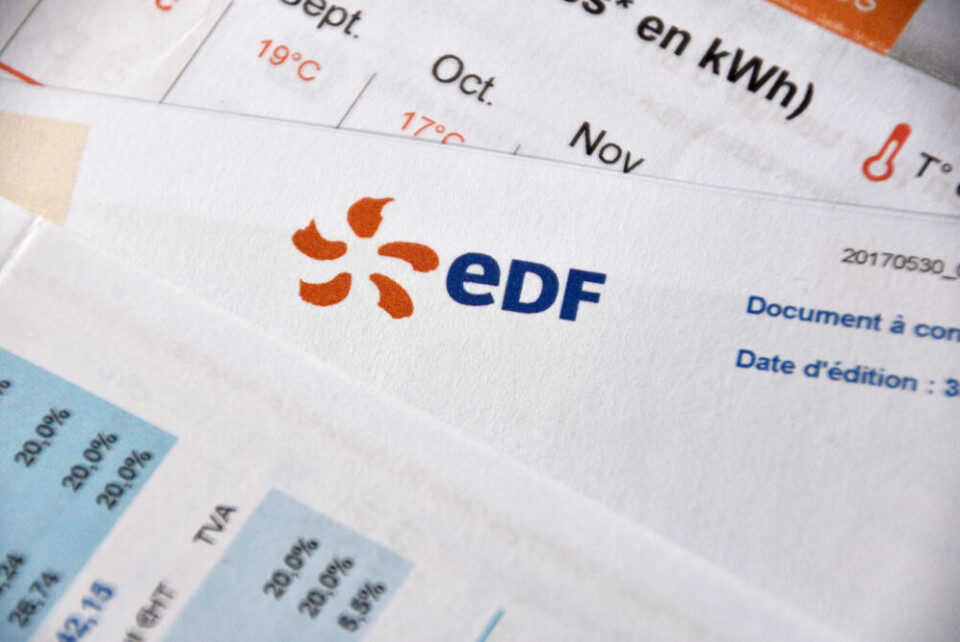-
How to check whether you will be fined for a speeding offence in France
Fines can be sent anytime after an incident
-
How to help wounded wildlife and strays in France
Is illegal to treat wild animals at home unless you have authorisation
-
Electricity bills at risk of steep rises, claims French consumer association
Bills could rise by as much as 20% next year, the association has said
Compare, switch, save: Which French electricity contract is best?
How to work out the right contract for you and avoid termination charges if you change provider

Household regulated electricity costs soared in February by 9.8% in some cases, drawing attention to France’s complicated system of pricing.
The 9.8% average rise was for homes on tariffs offering cheaper night-time electricity, usually between 22:00 and 06:00.
For homes without this tariff, the average rise was 8.6%, according to government figures.
Read more: SEE: Most French electricity bills to rise by 9.8% in February
EDF tariff shield phase-out causing price rises
The price hikes have focused attention on alternatives to EDF, the state-owned electricity company that dominates the market and offers prices set by government regulators.
Only EDF, and a few local electricity syndicates formed long ago, are obliged to offer the regulated tariffs.
In line with European Union free market rules, French customers can use alternative suppliers – but some were badly stung when sharp wholesale price rises caused by the war in Ukraine were passed on.
Meanwhile, EDF’s domestic customers were protected by a ‘tariff shield’ put in place by the government. It is the phasing out of this tariff shield that led to February’s price rises.
Three types of contracts available
In the free-market supply of electricity, there are three types of contracts:
-
those offering a fixed price for a fixed term, usually based on a price per kWh
-
those with variable tariffs, depending on the market price
-
those offering prices that are indexed to the regulated tariffs, often a few per cent cheaper
However, even contracts offering a fixed price for a fixed term can see price rises, as suppliers can vary subscription costs or apply tax changes.
How to compare prices
The government’s Médiateur national de l’énergie offers reliable price comparisons on its website.
On the day we tested it, results showed 14 different suppliers with prices lower than the EDF regulated price, most promising €100 a year less.
Some offered fully ‘green’ electricity, which in France includes nuclear as well as renewable sources.
Lowest of all was EDF’s Tempo tariff – €300 a year cheaper than the Tarif Bleu regulated offer.
Customers must, however, accept that for 22 rouge days a year, almost always in winter, the price of electricity will be very high. They are alerted in advance so they can turn off as many appliances as possible.
Read more: Six tips to save money on your boiler in France
Are nighttime tariffs right for you?
Contracts offering cheap night-time electricity are only likely to save customers money where they use at least 30% of their electricity at night, warns the Médiateur.
Linky meters now make it easy for people to see how much electricity is used at night (heures creuses) compared to the day (heures pleines).
Households that could benefit from a night-time tariff include those whose main consumption is for heating water.
France’s electricity boards can include provision to switch on hot water tanks automatically via longwave radio signal.
Most modern washing machines can also be programmed to take advantage of cheaper night rates. This can work for electric car charging.
How to avoid end of contract charges
France’s consumer protection agency, the DGCCRF, has reminded customers that electricity contracts can be changed at any time, with the new supplier doing all the necessary paperwork.
The Médiateur national de l’énergie warns not to sign any documents ending the previous contract – doing so involves paying service costs, which are not applicable if the new supplier does the work.
Switching will not involve any break in electricity supply, which is assured by the distribution grid operator Enedis.
Overall consumption of electricity in France fell by 3.2% in 2023, official figures show.
Related articles
New energy cheque in France: you may need to apply this year
What aid is available to install home solar panels in France in 2024?
Noise is top concern stopping heat pump installation in France
























